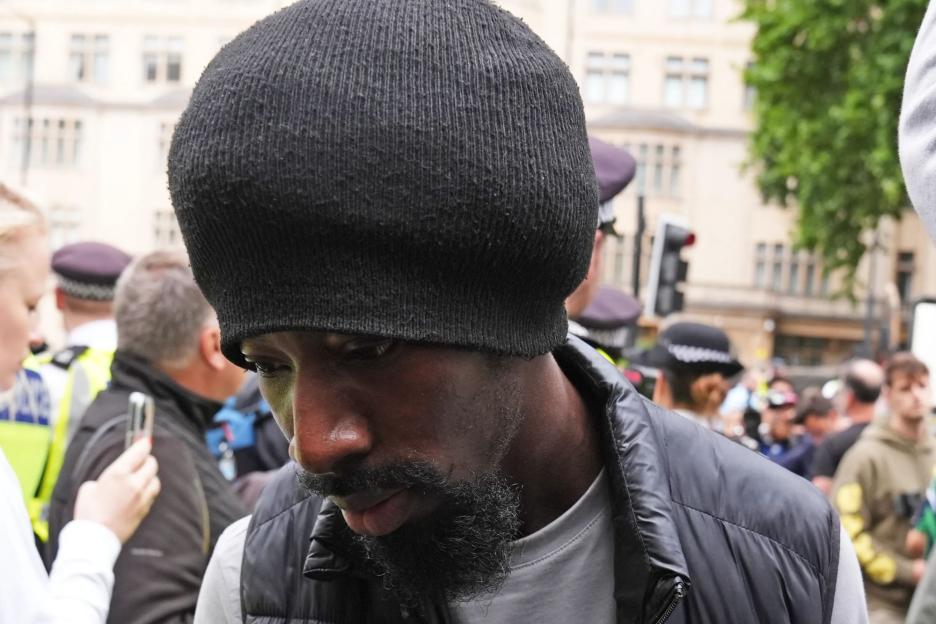A FRESH bombshell theory in Lucy Letby’s case is a “smoking gun” that “proves she’s innocent”, a medical expert has claimed.
After two trials, Letby was found guilty of killing seven newborns and attempting to kill eight others in one of the most shocking murder cases in the nation’s history.
 Letby was found guilty of murdering seven babies and attempting to murder seven more
Letby was found guilty of murdering seven babies and attempting to murder seven more
 Letby worked in the Countess of Chester Hospital where she carried out her sickening crimes
Letby worked in the Countess of Chester Hospital where she carried out her sickening crimes
 Letby being arrested
Letby being arrested
Between 2015 and 2016 nearly three times as many new-born babies died at the Countess of Chester Hospital , where Letby worked, than normal.
Described as a cold-blooded, calculating killer , Letby was said to have used her trusted role on a neonatal intensive care unit to cause catastrophic harm to the most vulnerable tots without leaving a trace.
She was handed 15 whole life sentences, meaning she will never be released from prison.
However, a growing number of expert voices are now questioning the evidence used to convict the former nurse.
And questions regarding two tots who were poisoned with insulin have now been raised.
Professor Geoff Chase and Helen Shannon, a chemical engineer, have written an extensive 173-page report for Letby’s defence team, which has been submitted to the Criminal Cases Review Commission (CCRC).
The prosecution argued that both babies had been poisoned with insulin and highlighted blood tests that it said were clear evidence of this.
For the prosecution, the insulin cases proved that someone at the Countess of Chester Hospital was harming babies.
Letby was then convicted of injecting insulin into the feed bags of two babies known as Child F and Child L at the Countess of Chester Hospital in 2015 and 2016.
But no insulin was ever found to be missing.
During Letby’s trial, Prof Peter Hindmarsh, an endocrinologist, calculated that just a drop (0.6ml) of insulin needed to be added to feed bags to cause the crashes.
But Prof Chase and Shannon disagreed, claiming that it could even require up to six to seven vials, which would have been noticed by hospital staff, as reported by the Telegraph.
Prof Chase told the Telegraph : “The trial stated no insulin was missing and it would require only a very small drop.
“If injected intravenously yes, this is true, but with adsorption, or sticking, it would require between 1.2 teaspoons to six to seven vials.
He claimed: “If no insulin is missing, there is no way to commit that crime. Insulin sticking to lines, bags, tubes is a known thing and it can significantly impact, for example, insulin pump use among small children.
“The lack of missing insulin is the true smoking gun in this case. Simply, there was no possibility to commit insulin poisoning as hypothesised in court.”
TRIAL DOUBTS
During the trial opening, Nicholas Johnson KC admitted the insulin anomalies were originally “attributed to a naturally occurring phenomenon”.
And Ms Shannon believes that there is “no way to prove a crime occurred” with “ample evidence” against this.
During Letby’s trial, biochemist Dr Anna Milan from a Liverpool lab told the court the only way to get such strange readings for Child F and Child L was if insulin had been given to the babies.
But Prof Chase and Ms Shannon also claim that the test results could have a completely natural explanation, reports the Telegraph.
They claim that premature babies are often born with insulin-binding antibodies, which make the hormone linger in the body for much longer than expected – pushing levels way beyond what’s considered normal.
Studies show between 3 per cent and 97 per cent of premature tots have these antibodies, especially if they’ve had infections or antibiotics.
UK's most prolific child killer Lucy Letby
- The possible motives for Lucy Letby’s murders
- All about Lucy Letby’s parents John and Susan
- Inside her interview with the cops that arrested Lucy Letby
- Lucy Letby’s shameless crimes explained
- How Lucy Letby went from model nurse to child killer
- Killer nurse Lucy Letby’s twisted mementos from murdered babies
Both Child F and Child L had been treated for suspected sepsis, and the unit they were in was fighting off a nasty bug, Pseudomonas aeruginosa, which had infested the taps.
Prof Chase told the outlet that when a newborn or mum is exposed to bugs or certain antibiotics, “insulin levels can shoot through the roof”.
He claimed that once those antibodies bind to the insulin “it can hang around in the blood for days, weeks, or even months” reports the Telegraph.
Despite this, the Liverpool lab never sent the blood off for the extra tests needed to check for the antibodies.
A lab warning note clearly stated their testing machine couldn’t prove if insulin had been injected – and told staff to send samples to a forensic lab instead, a court heard.
But those vital tests were never done and by the time the defence team wanted a second opinion, the blood had already been binned.
Letby has always denied her convictions but lost two attempts last year to challenge them at the Court of Appeal.
Her convictions are now being reviewed by the Criminal Cases Review Commission, which investigates potential miscarriages of justice.
It comes after shocking unseen pictures emerged showing Letby partying at a pal’s wedding while on bail for murdering seven new-born babies.
Meanwhile, three former senior staff at the Countess of Chester have been arrested on suspicion of gross negligence manslaughter.
Cheshire police are also conducting a separate investigation into deaths and non-fatal collapses of babies in Chester and at the Liverpool Women’s Hospital where Letby trained from 2012.
 The killer nurse is currently serving 15 life sentences
The killer nurse is currently serving 15 life sentences







